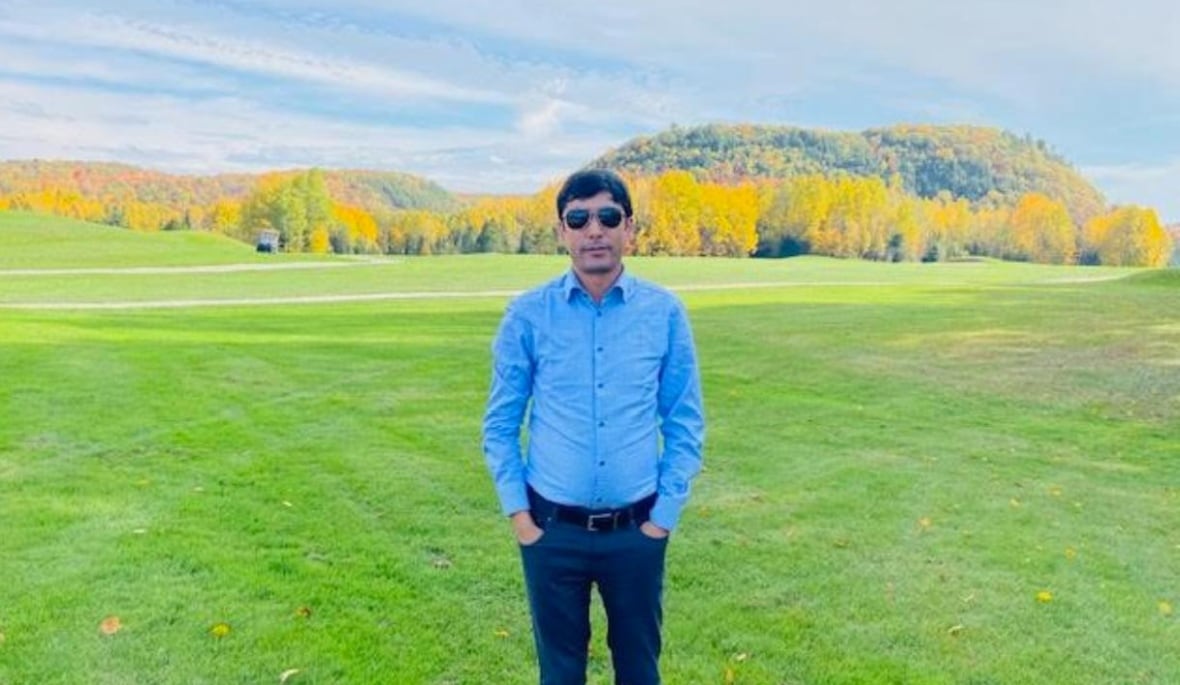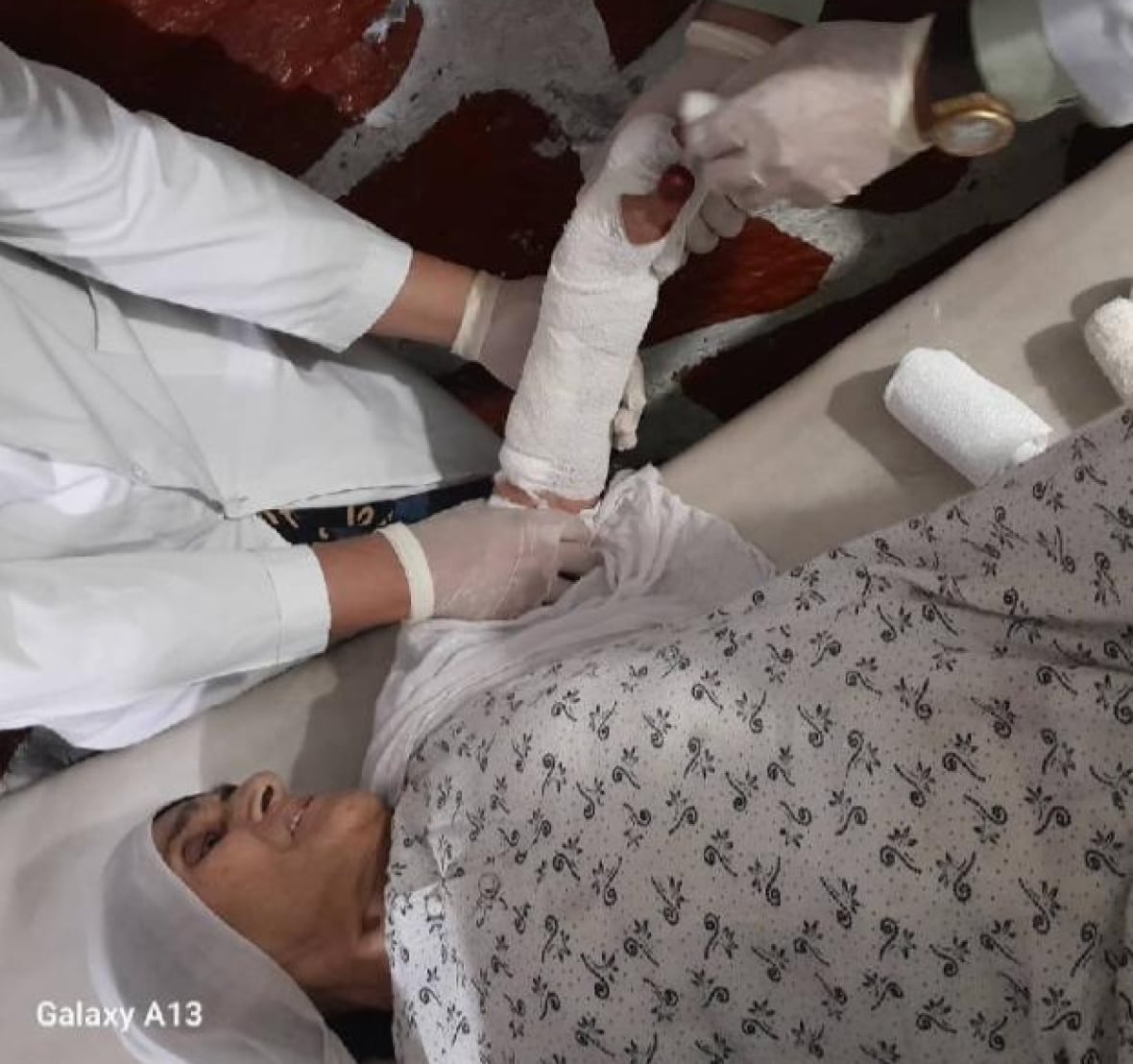Afghan Canadian fears mother may be sent back into Taliban's hands after they nearly killed her

An Afghan Canadian man is calling on the federal government to speed up the refugee sponsorship process for his mother, who fled Afghanistan after she was beaten by the Taliban and is now hiding in Tajikistan to avoid deportation back to Kabul.
Noorullah Hakemi, who lives in Ottawa and came to Canada in 2019, said his mother, Bibi Khatoon Yaqoubi, 57, remains in danger because the authoritarian government in Tajikistan has ordered the deportation of Afghan refugees.
"She is living in a good condition for now from the health perspective, but it's not a good condition from the safety perspective," Hakemi told CBC News.
He served as an adviser in the Afghan government before the Taliban took power.
"There is huge human rights violation [in Tajikistan]. They're arresting people, they're beating people, they're torturing people," said Hakemi.
English-language media reports from the region in June said that authorities in Tajikistan had launched sweeping immigration raids targeting Afghan refugees.
Rafi Ferdous, a founding member of the Afghanistan-Canada Council, said an estimated 3,000 Afghan refugees in Tajikistan were awaiting the processing of their sponsored refugee cases to come to Canada. He said Ottawa needs to prioritize these cases.
"We want the government [of Canada] to process the cases waiting in Tajikistan," said Ferdous.

Canada allows community groups, organizations, corporations and groups of citizens to bring in refugees through a sponsorship program. Under the program, sponsors are responsible for providing refugees with living and financial support, and help them find work and arrange for schooling.
Throughout the late 1990s and into the early 2000s, Tajikistan was one of the main corridors Afghan refugees used to travel to Canada. The country has traditionally been hostile toward the Taliban, said Ferdous.
"They [the Tajikistan government] changed their behaviour …and this is new and this is kind of strange," he said.
Immigration, Refugees and Citizenship Canada said in an emailed statement to CBC News that it was "deeply concerned about reports" of Afghan refugee deportations by Tajikistan authorities.
The statement said the government was working with the International Organization for Migration and the United Nations High Commissioner for Refugees (UNHCR) to liaise with authorities in Tajikistan to "protect and support Afghans destined for resettlement in Canada."

Global Affairs Canada said in an emailed statement that Canada does not recognize the Taliban as the legitimate government of Afghanistan and that the group remains listed as a terrorist entity.
The statement said Canada was monitoring the treatment of Afghan refugees in Tajikistan, as well as in Pakistan and Iran.
Helen Thibault, an associate professor of political science at Nazarbayev University in Astana, Kazakhstan, said there may be several factors behind the Tajikistan's government decision to send Afghan refugees back into the arms of a Taliban government they have historically opposed.
Thibault said Tajikistan may be following the lead of Russia, which has recognized the Taliban as Afghanistan's legitimate rulers.
"Whenever Russia does something, Tajikistan is one of the first countries of Central Asia to follow," she said.
'Copycat effect'The Tajikistan government may also be feeling a strain on resources from hosting about 10,000 Afghan refugees in a small country, she said. The majority of refugees are in the poorer, more rural southern region that borders Afghanistan, said Thibeault.
"It could be that Tajikistan is seeing what is happening in the U.S. and says, 'Oh, well, you know, this is an acceptable practice now. We can deport anybody that is allegedly violating our migration laws.' It's like a copycat effect," she said.
For Hakemi, the motives don't change the fear he faces every day knowing his mother could be grabbed and deported back to a country under a regime that nearly took her life.
"Of course I'm afraid, she is not where she is supposed to be," he said. 'Where she is living is not stable. If she goes back to Afghanistan, I don't know what will happen with the Taliban there."

Hakemi said his mother's sponsorship was arranged through an Afghan women's immigration group in Toronto.
He said his mother fled to Tajikistan in December 2024 after recovering from a beating at the hands of Taliban officials that left her with two fractured legs and a fractured left hand, along with other injuries, according to a report submitted to Canadian immigration officials that included medical records and photographs.
She was dragged into the street, whipped and beaten in front of a crowd during Aug. 15, 2024, celebrations marking the Taliban's return to power, according to the report.
"There were two other women. I told them that the Taliban are murderers and all that," said Yaquobi in an audio statement she recorded for CBC News describing her ordeal.
"Those women told the Taliban what I said. The Taliban pulled me out of the car and beat me. I was unconscious and ended up in the hospital … When I regained consciousness, I realized my arms and legs were broken."
Yaquobi's case has been filed with the office of Richard Bennett, the UN's special rapporteur on the situation of human rights in Afghanistan.
Bennett's office did not respond to a CBC request for comment.
cbc.ca





